Related Research Articles
The Lambda Legal Defense and Education Fund, better known as Lambda Legal, is an American civil rights organization that focuses on lesbian, gay, bisexual, and transgender (LGBT) communities as well as people living with HIV/AIDS (PWAs) through impact litigation, societal education, and public policy work.

The Treatment Action Campaign (TAC) is a South African HIV/AIDS activist organisation which was co-founded by the HIV-positive activist Zackie Achmat in 1998. TAC is rooted in the experiences, direct action tactics and anti-apartheid background of its founder. TAC has been credited with forcing the reluctant government of former South African President Thabo Mbeki to begin making antiretroviral drugs available to South Africans.
Homosexuality in India has been documented and discussed in various artworks and literary works since ancient times and continues to be a major discussion point as LGBTQ rights are advanced in modern politics. Homosexuality is legally permitted in India, and same-sex unions have limited recognition.

Lesbian, gay, bisexual, and transgender (LGBT) persons in Jamaica face legal and social issues not experienced by non-LGBT people. Consensual sexual intercourse between same-sex partners is legally punishable by imprisonment.

Edwin Cameron is a retired judge who served as a Justice of the Constitutional Court of South Africa. He is well known for his HIV/AIDS and gay-rights activism and was hailed by Nelson Mandela as "one of South Africa's new heroes". President Ramaphosa appointed him as Inspecting Judge of Correctional Services from 1 January 2020 and in October 2019 he was elected Chancellor of Stellenbosch University.
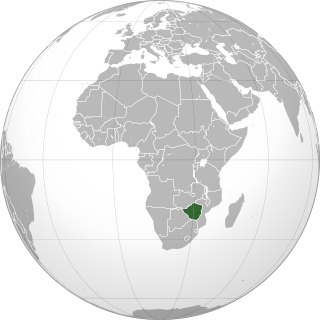
Lesbian, gay, bisexual, and transgender (LGBT) people in Zimbabwe face legal challenges not experienced by non-LGBT residents. Since 1995, the Government of Zimbabwe has carried out campaigns against LGBT rights. Sodomy is classified as unlawful sexual conduct and defined in the Criminal Code as either anal sexual intercourse or any "indecent act" between consenting adults. Since 1995, the government has carried out campaigns against both homosexual men and women.

Lesbian, gay, bisexual, and transgender (LGBT) rights in Angola have seen improvements in the early 21st century. In November 2020, the National Assembly approved a new penal code, which legalised consenting same-sex sexual activity. Additionally, employment discrimination on the basis of sexual orientation has been banned, making Angola one of the few African countries to have such protections for LGBT people.
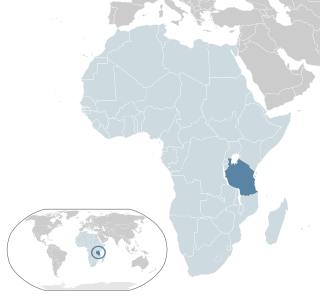
Lesbian, gay, bisexual, and transgender (LGBT) people in Tanzania face severe challenges not experienced by non-LGBT residents. Homosexuality in Tanzania is a socially taboo topic, and same-sex sexual acts are criminal offences, punishable with life imprisonment. The law also criminalises heterosexuals who engage in oral sex and anal intercourse.

Lesbian, gay, bisexual, and transgender (LGBT) people in Botswana face legal issues not experienced by non-LGBT citizens. Both female and male same-sex sexual acts have been legal in Botswana since 11 June 2019 after a unanimous ruling by the High Court of Botswana. Despite an appeal by the government, the ruling was upheld by the Botswana Court of Appeal on 29 November 2021.
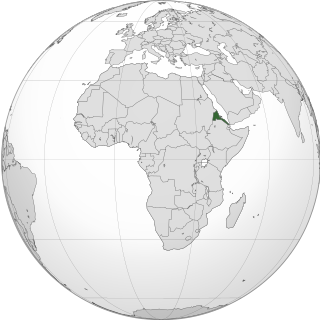
Lesbian, gay, bisexual, and transgender (LGBT) people in Eritrea face severe challenges not experienced by non-LGBT residents. Homosexual acts are illegal in Eritrea; typically punishable by up to three years in prison. LGBT persons are reportedly prosecuted by the government and additionally face hostility amongst the broader population.

Lesbian, gay, bisexual, and transgender (LGBT) people in Malawi face legal challenges not experienced by non-LGBT residents. Both male and female expressions of same-sex sexual activity are illegal within the nation. The Penal Code prohibits "carnal knowledge against the order of nature", attempts to commit "carnal knowledge against the order of nature", and acts of "gross indecency".

Lesbian, gay, bisexual, and transgender (LGBT) people in Senegal experience legal persecution. Senegal specifically outlaws same-sex sexual acts and, in the past, has prosecuted men accused of homosexuality. Members of the LGBT community face routine discrimination in Senegalese society.
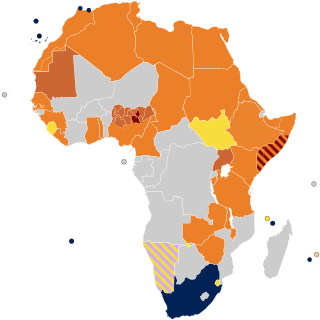
Lesbian, gay, bisexual, and transgender (LGBT) rights in Africa are generally limited in comparison to the Americas, Western Europe and Oceania.

Toonen v. Australia was a landmark human rights complaint brought before the United Nations Human Rights Committee (UNHRC) by Tasmanian resident Nicholas Toonen in 1994. The case resulted in the repeal of Australia's last sodomy laws when the Committee held that sexual orientation was included in the antidiscrimination provisions as a protected status under the International Covenant on Civil and Political Rights (ICCPR).
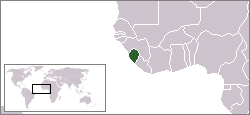
Lesbian, gay, bisexual, and transgender (LGBT) people in Sierra Leone face legal challenges not experienced by non-LGBT residents. Male same-sex sexual activity is illegal in Sierra Leone and carries a possible penalty of life imprisonment, although this law is seldom enforced.

The majority of the countries of the Commonwealth of Nations, formerly known as the British Commonwealth, still criminalise sexual acts between consenting adults of the same sex and other forms of sexual orientation, gender identity and expression. Homosexual activity remains a criminal offence in 31 of the 56 sovereign states of the Commonwealth; and legal in only 25.
The issue of human rights in Tanzania, a nation with a 2012 population of 44,928,923, is complex. In its 2013 Freedom in the World report, Freedom House declared the country "Partly Free".

Maurice Tomlinson is a Jamaican lawyer, law professor, and gay rights activist currently living in Toronto, Ontario, Canada. He has been a leading gay rights and HIV activist in the Caribbean for over 20 years and is one of the only Jamaican advocates to challenge the country's 1864 British colonially-imposed anti gay Sodomy Law. This law predominantly affects men who have sex with men (MSM) and carries a possible jail sentence of up to ten years imprisonment with hard labour.
The Southern Africa Litigation Centre or SALC is a non-profit organisation based in Johannesburg, South Africa. It was founded in 2005 by Dr. Mark Ellis. He and Tawanda Mutasah conceptualised the organisation and hired Nicole Fritz who served as the first director for ten years. Later, Kaajal Ramjathan-Keogh was appointed director and replaced by Anneke Meerkotter, who currently leads the organisation.
This is a timeline of notable events in the history of non-heterosexual conforming people of African ancestry, who may identify as LGBTIQGNC, men who have sex with men, or related culturally specific identities. This timeline includes events both in Africa, the Americas and Europe and in the global African diaspora, as the histories are very deeply linked.
References
- 1 2 3 4 5 "Sibongile Ndashe". Salzburg Global Seminar . Retrieved 8 November 2017.
- 1 2 3 4 5 "Sibongile Ndashe". Initiative for Strategic Litigation in Africa. Retrieved 9 November 2017.
- ↑ Manji, Firoze; Musa, Roselynn; Mohammed, Faiza Jama (2006). Vulgarisation du Protocole de l'Union Africaine sur les droits des femmes en Afrique (in French). Fahamu/Pambazuka. p. 75. ISBN 9781904855682.
- ↑ Cane, Peter; Conaghan, Joanne (2008). The New Oxford Companion to Law. xxix: Oxford University Press. ISBN 9780199290543.
- 1 2 3 4 Zee, Bibi van der (26 October 2017). "Tanzania illegally detains human rights lawyers for 'promoting homosexuality'". The Guardian . Retrieved 9 November 2017.
- 1 2 3 4 "Tanzania deports lawyers amid 'gay row'". BBC News. 28 October 2017. Retrieved 9 November 2017.
- ↑ Sieff, Kevin (23 November 2016). "Tanzania suspends U.S.-funded AIDS programs in a new crackdown on gays". Washington Post . Retrieved 18 November 2017.
- ↑ Van Niekerk, Garreth (30 October 2017). "Tanzanian Authorities Wanted Rectal Exams For Gay South African 'Hostages'". Huffington Post South Africa. Retrieved 9 November 2017.